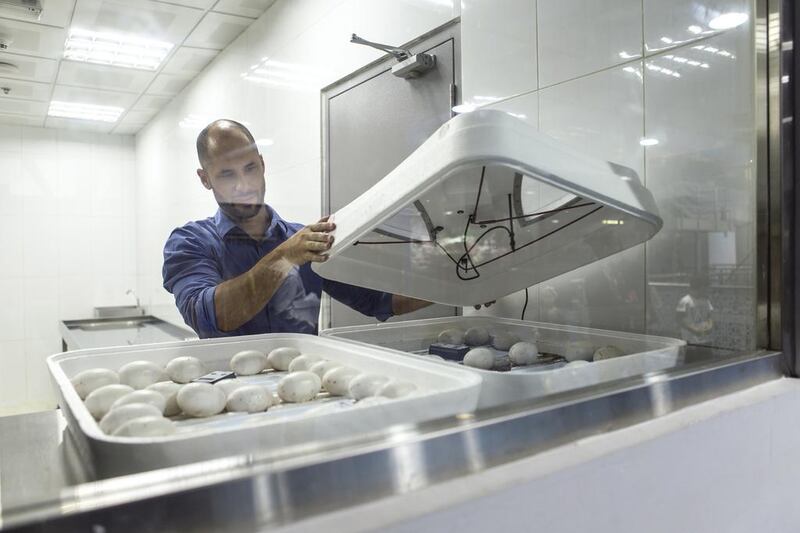DUBAI // A careful operation is under way to ensure dozens of crocodile eggs are given the best possible chance to hatch.
Expectant parents King and Queen Croc have prepared a new home for their young as they wait patiently for the new arrivals at Dubai Aquarium and Underwater Zoo.
Experts at the aquarium are keeping the 59 eggs in carefully controlled incubators. The temperature is maintained at 32°C with 90 per cent humidity to match the conditions they would have in the wild in Australia.
“It was a little tense trying to remove the eggs from the nest Queen Croc built,” said Paul Hamilton, head curator.
“The females become very aggressive during the breeding period so I had to create a diversion at one end of the enclosure while my team carefully removed the eggs.”
It was a delicate operation because the eggs must not be moved from where they are laid as it could mean the embryo does not develop properly, he said.
“The eggs were placed on a tray and we had to get them up to the incubators,” he said. “It was a slow operation and we had a group of people surrounding the eggs to make sure there were no mishaps.”
The eggs are marked with crosses to make sure they are the right way up and separated into those most likely to hatch and those staff at the underwater zoo are hopeful will do so.
Keeping them at a temperature of 32°C means the embryos will develop into females; a cooler temperature tends to produce more males. “It’s just easier to home females because males are more aggressive and don’t tend to get along,” said Mr Hamilton.
The eggs are checked twice a day to ensure they are being incubated in enough water.
If an egg is found to have failed to have developed properly then it is removed to prevent potential contamination of others.
Some of the hatchlings will be kept in a separate enclosure, while others will stay with their parents once they are born.
No plans have been confirmed to send the newborns to other zoos but it would only be done so if the facilities match those at Dubai Aquarium, said Mr Hamilton.
The eggs were laid on January 27 and most are due to hatch over a seven to 14-day period in mid-April. Two of the four incubators being used have been set up to allow visitors to watch the eggs hatch.
“Crocodiles tend to grow very quickly over about 10 years, after which they slow down a lot,” said Mr Hamilton.
“It’s hard to say if one of King Croc’s kids will grow up to be as big as him because he’s pretty special – but you never know.”
For more details visit www.thedubaiaquarium.com.
nhanif@thenational.ae






